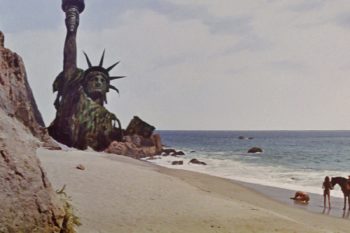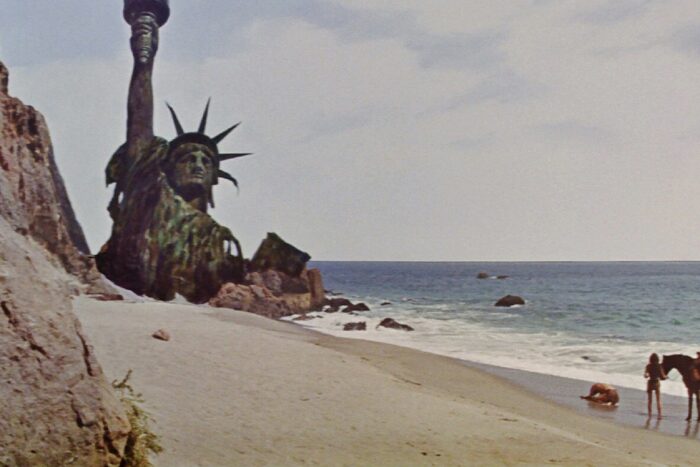Appreciate the Independence, USA
There’s a bit of a debate among ancient historians about what really is the world’s oldest civilization (by “civilization” I’m using a bit of an old-fashioned definition that requires a civilization to have used writing or at least record-keeping to count as civilized). Egypt is in the running though–and since there is still a country of Egypt today, you might think that it’s possible for a nation to be a permanent thing. This post in fact explores the idea that isn’t so, specifically as applied to the USA. Nations are temporary things, even when they endure much longer than a human lifetime. Which really ought to cause those of us living in the United States of America to appreciate the existence of our nation on this Independence Day–because what we have may not last.
By the way, the statement I made about “much longer than a human lifetime” was not meant to be a throwaway line. Plenty of nations both began and ended within the span of a single lifetime, which doesn’t mean they didn’t have a lasting impact on world history. Examples: the Nazi Third Reich and the Weimar Republic in Germany in the 20th Century. As well as the 20th Century’s Soviet Union, which began in 1917 and ended in 1992–which is considerably less than the lifespan of the longest-lived of modern human beings (which is around 120 years). An ancient example would be the Neo-Babylonian Empire, which conquered ancient Jerusalem, which lasted roughly as long on the world stage as the USSR.
But to return to my example of Egypt, yes, there are still people living there. Yes, genetic studies show most modern Egyptians are descendants of ancient Egyptians. Yes, the pyramids, one of the early achievements of ancient Egypt, are still standing.
But if, let’s say, one thousand years from now the territory currently occupied by the United States is occupied by a nation with a name derived from a language other than the native language of most people in our nation now (English), whose territory is somewhat different (say, it includes the south of what is today Canada, but doesn’t include the West Coast), whose language is completely unrelated not only to the language of its past but also to the language of its name, whose form of writing is totally different, whose form of government is entirely different, whose religion is entirely different, which has a totally different day-to-day life, I think we’d correctly include that wouldn’t be the same country.
And that’s the situation with Egypt. The name “Egypt” itself comes from Greek, not ancient Egyptian, a relic of the time Greek-speakers controlled Egypt. But Greek-speakers were conquered in Egypt by Islamic armies roughly 1300 years ago. Now the language of Egypt is Arabic. A different language, a completely different culture, religion, and writing, and even with a different-shaped territory that includes less of the Nile and more desert. And also the Suez Canal that didn’t exist in ancient times and the Aswan dam controlling the gentle floods of the Nile that were a feature of ancient life there. But no longer.
There is still a country where Ancient Egypt used to be, but it’s not the same one as existed in the past.
No single nation has lasted through the span of all human history. And an extremely large number of nations have come and gone over the span of recorded time.
Why would the USA be different? Because we are the strongest nation in the world?
How many times has the currently strongest nation or empire been destroyed or been dismembered to the point it’s only a ghost of its past self? I’m not counting specifically, but plenty of times.
Often the end of a nation comes gradually, but not always. The USSR and the Neo-Babylonians were essentially in existence one day and non-existent the next. In Babylon that meant the invasion of a foreign power (the Persians) that didn’t immediately change all aspects of everyday life, but was a radical change that only grew more significant over time. The USSR has been taken over by a Russia that is substantially similar to the old Soviet government, with a similar language and lots of cultural similarities. But the USSR really was different (just ask a modern Lithuanian). And its sudden end was not anticipated by most people.

Helen Mirren as the Soviet Commander in 2010: Odyssey Two, hammer and sickle included.
Image copyright, MGM.
Soviets and Americans working together in spite of ongoing Cold War tensions were featured in the science fiction movie (and book before it) 2010, Odyssey Two that was popular in the 80s. Yet the Soviets were gone well before 2010–their flag was gone, their anthem was no longer sung. And less than ten years before it took place, only a relative handful of people anticipated the fall of the USSR. It seemed like the USSR would be around forever. But it wasn’t.
The US military, which used to vigorously screen for Communist-leaning potential soldiers, no longer asks those questions of new recruits. We’ve moved on.
So that the USA will end is not a strange idea at all, and it’s not a stranger to science fiction, either–there have been plenty of movies that include a post-apocalyptic USA. Such as one I really enjoyed, The Book of Eli (not to mention the ending of the classic The Planet of the Apes). And other stories, mostly books, such as Isaac Asimov’s Foundation Trilogy, have imagined a future so distant that the Planet Earth itself had been forgotten, let alone any specific nation on the planet. (Obviously if all nations on Earth are forgotten, the USA will have ended long before that point.)

The final moment of The Planet of Apes.
Image copyright: 20th Century Fox
How will the USA end? When will it end? I can’t say for sure. Though contemplating the end is not really my point here. I’m not specifically predicting doom and gloom. Just saying we don’t know the future and should not presume continuity.
I do also mean to say that those of us who love the United States of America ought to appreciate it for what it is, for what good things it offers, while we can. Seize the day, cherish the moment–because we can never say for certain which day in the future will be the end of what we now know.
It’s the 243rd year since the United States declared its independence. Let’s hope we make it to 250–and beyond!






























Book of Eli was a cool movie 🙂
A lot of US citizens seem to get upset with the US or feel ashamed of it, etc. There are of course a lot of problems and we should be trying to fix them, but things have gotten so much better in a lot of ways, and things could be so much worse/are definitely worse in other time periods and places.
And they do that without realizing that change doesn’t happen without a lot of work. One time on Pinterest, there was a post talking about a notice posted in public areas of Canada. It was basically an anti rape thing, telling people they needed to have consent and all that. Some US citizens were commenting and complaining that they hated living in the US partially because billboards/posters/etc like that didn’t exist in our nation. I actually have seen a billboard about consent, and have seen people lecture and talk about those things in a class setting and whatnot, so I left a comment on that post saying so. When people say they hate the US because they don’t see people talking about certain issues, etc, it bothers me. Especially when their complaints are kind if inaccurate (like in this case, since some places in the US DO have notices like that)
Like, not only is it inaccurate to say that no one talks about consent in the US, but in Canada, the reason that poster existed was because people advocated for it. It wasn’t because Canada is some magical place where those things appear on their own. If someone doesn’t think there are enough consent posters and billboards, then they should focus on making some posters of their own, rather than whining that they aren’t there. There might be some time, place and manner restrictions about where such notices are placed, but those can be worked through.
I would say in many ways the United States is a better nation than it was in the past and in some ways it’s worse (e.g. the annual consumption of illegal drugs in the USA is truly astounding and our rate of violent crime is significantly higher per capita than the blood-soaked 1800s). Some people fear that changing the USA will bring about its end. Obviously change in and of itself is not what will destroy the USA.
But I am seriously concerned about sharp divisions within the US about what our nation can and should be. It would seem to me that such divisions have much more potential to destroy us than outside invaders. And the reaction some people have to things they perceive the USA lacks was reflected in your comment on the US focus (or lack thereof) on consent. It’s extreme to hate a country for something like that–but many people do.
Which is just one of the factors that led me to say outside invaders are not the biggest threat to the USA.
Unless aliens invade–don’t let the Independence Day movies fool you. If aliens invade, were most likely done for! (Though I’m not holding my breath on that. 🙂 )
Yeah. And I suspect they aren’t disliking America only over that one issue. It’s probably more like they see tons and tons of little issues like that and, since they mainly have experience with America or are surrounded by people that talk badly about it all the time, they decide the US is worthy of their disdain, never mind that a lot of the same issues plague other nations in some form or another.
All our infighting would probably leave us more open to outside threats as well, so that’s yet another aspect of the issue. And it’s even more frustrating when people are fighting based off things that aren’t necessarily always true. Like, on Pinterest I saw a post that basically complained and asked why Republicans/Conservatives/whatever assumed that all Democrats/Liberals were for open borders. One of my first reactions was like ‘I dunno. Probably for the same reasons so many Democrats/Liberals assume that all Republicans/Conservatives are racists that only care about borders out of hatred and prejudice.’
Some Democrats are for open borders, and some Republicans are racist, but not all of them are. But the assumptions that both sides have just make it a million times harder to come up with solutions.
Linking this article as well, since I saw it today and there’s tons of interesting implications to it:
https://getpocket.com/explore/item/americans-strongly-dislike-pc-culture?utm_source=pocket-newtab
https://www.buzzfeed.com/katangus/america-tumblr?ref=hpsplash&origin=spl
Interesting post. It’s very true that we should be so very grateful to live in a place where we have the freedoms and blessings that we do. I have them here in Canada, and you have them in the US, too. Happy Independence Day to all my American neighbours!
PS. That last scene of the Battle of the Apes was one of the most shocking scenes I had ever seen in a movie up to that point….thanks for including that picture!
Hey–I’ve been doing my family genealogy recently and I have a lot of ancestors who lived in Canada prior to moving to the USA. A direct patrilineal ancestor of mine was a United Empire Loyalist who moved to Canada from Massachusetts Colony at the time of the American Revolution. His grandson moved back to the USA (to Kansas) after the US Civil War was over. Makes me suspect they were abolitionists motivated to return once slavery had been legally done away with.
And on my mother’s side I’m related to some of the first French settlers of Quebec. On that side, my grandmother was born and raised in Canada, which was cool.
Plus I grew up in Montana and as a child Canada was the only foreign country I’d ever visited. PLUS I spent a bit of time working with Canadian troops in Afghanistan–I even once hopped a ride on a Canadian C-130.
So anyway, I’m very friendly to Canada. Thanks for your comment!
(But if aliens invade us, they’ll get you, too. 🙂 )